Geneva insecurity threatens cultural mix
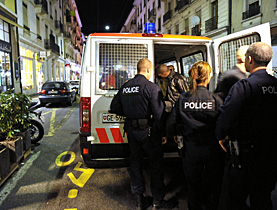
Several hundred violent petty criminals and drug dealers risk damaging the multicultural fabric of Geneva's central Paquis district and tarnishing the city's image.
Politicians, the police and local residents remain at odds over how to get to grips with the persistent insecurity in the popular lakeside district and in particular, how to deal with repeat offenders.
The Paquis quarter, squeezed between Lake Geneva and the train station, is best known for its colourful blend of cultures, funky restaurants and shops, five-star hotels, relatively cheap accommodation and for being Geneva’s unofficial red-light district.
But over the past two years the area has grown increasingly seedy and dangerous, attracting some 200-plus hardcore petty criminals from North Africa, who prey on tourists and passers-by, and the same number of drug dealers, mostly West Africans, some of whom are from other Swiss cantons.
After months of complaints from residents, the police last week carried out three major operations in the district. In all, 186 people were stopped and questioned and 12 were arrested either for drugs or asylum matters.
Paquis seems to have temporarily rediscovered its calm, but for how long, wonders Alain Bittar, the owner of the Arab bookshop L’Olivier in the rue de Fribourg.
“The operations are a signal to the residents that they have been listened to,” he told swissinfo.ch. “If the canton and city of Geneva, the judicial authorities and the police get together as quickly as possible and come up with a serious adequate response I don’t think the problem will go on much longer.”
Cafe owner Jalel Matri said he was happy to see a greater police presence but he felt local politicians seemed “powerless” and “incapable of finding a long-term solution”.
Bittar said he started lobbying the authorities to do something about the insecurity for one specific reason.
“The bookshop has existed for 30 years and for 29 years I never heard a single racist word. Suddenly owing to a small group of people community tensions started to emerge,” he explained.
Dealers versus petty criminals
According to the police, the dealers are mostly asylum seekers from other cantons who travel to Geneva as other cantons have stricter laws.
“They understand very well how the system works. They don’t arrive in Paquis and start selling drugs by chance,” said police spokesman Eric Grandjean.
Bittar makes a clear distinction between dealers and the more menacing petty criminals.
“Some dealers would like to find work. They say hello if you greet them or ignore you if you don’t – they are transparent,” he noted. “But there would be no dealer if there were no buyer. That’s another problem.”
Another local shop owner agreed.
“The dealers don’t pose a particular problem. I ask them to move on from the front of the shop and they are not aggressive,” he explained. “But with the Algerians the problem is different: they are arrogant, aggressive, looking for a fight and often armed with knives.”
They live from pick pocketing, mugging and stealing cars, and they give false identities saying they are Palestinians or Iraqis, for example, added Bittar.
The petty criminals are thought to have sought exile in Switzerland after having been forced out of Italy and France due to tougher security regimes there.
“They all take advantage of the system here, whereby they get stopped, arrested and freed – for most of them it’s impossible to send them back to their country of origin,” said Grandjean.
Underestimation
The residents accuse the authorities of having underestimated the situation and of passing the buck.
But Monica Bonfanti, head of the Geneva police, denied being powerless to deal with the troublemakers.
“I am simply one element of a chain,” she told Le Matin newspaper on Thursday. “If I don’t have the legal means to send criminals who are staying here illegally back home, other people are working on it.”
According to the Federal Migration Office, Switzerland has signed some 46 asylum readmission accords with 49 countries and 20 more are in preparation.
These agreements should in theory facilitate the expulsion of the troublemakers. The problem is that in the case of Algeria, the accord entered into effect in 2007 but will only be applicable once an additional protocol is signed – possibly in June 2009. Other African countries are accused of dragging their feet over the negotiation of these kinds of agreements.
Administrative detention
But in the absence of a readmission agreement there is another solution, the head of the Federal Migration Office, Edouard Gnesa, told Swiss radio a week ago.
“Under the new foreigners’ law, it is possible to combat these kinds of abuses using administrative detention,” he said.
This is the legal option of imprisoning repeat offenders up to 24 months while preparing their return home. In 2008 2,500 people were held in other cantons before being sent home, but the option is not used very often in Geneva.
“Administrative internment makes no sense,” René Longet, president of the Geneva Social Democratic Party, told Le Temps newspaper. “You lock people up without judgement for 24 months, and then what? You just send them away. It’s like treating people as subhuman and wanting to open a kind of Geneva Guantamano.”
Penal Code
Geneva’s Radical Party and Daniel Zappelli, Geneva’s public prosecutor, support the idea of administrative detention. Zappelli also wants to see fundamental changes to Swiss law.
“The current penal code is much too nice for these kind of cases. The system of day fines calculated on the earnings of the person who has committed the crime is completely ineffective,” he told Swiss radio.
While the insecurity question is being kicked around among the authorities, Bittar and other Paquis residents are crossing their fingers that the politicians will eventually join forces to find a long-term solution.
“But it doesn’t fool me; we are in the run-up to the [November cantonal] elections,” he told swissinfo.ch.
“All we want is to feel that in this street we are proper citizens, like those in the banking or residential districts.”
Simon Bradley in Geneva, swissinfo.ch
French-speaking Geneva is almost surrounded by France with a 103km-long border. The border with Switzerland is just 4.5km long.
The city itself has 185,000 inhabitants, while the canton has 445,000. The metropolitan Geneva area, which includes nine other towns, covers most of the canton.
According to Geneva police, there was an overall 2.5 per cent increase in local crime in 2008 compared with 2007.
The number of attempted or successful burglaries rose by 21.6 per cent to 6,000.
Violent crime, such as murders, carjackings and hold-ups, remained in the “Geneva norm”. Cases of actual bodily harm remained stable, while sexual attacks fell slightly.
Car thefts dropped in 2008, while incidents of bag-snatching and other cases of street robbery rose slightly.
Drug-related crime remained stable, the police declared. However special anti-drug operations would continue in 2009 in the Paquis, lakeside and Eaux-Vives/Jardins Anglais districts.
Some 81 policemen and women were injured in 2008 while carrying out their duties. Meanwhile the number of official complaints against the police fell last year.

In compliance with the JTI standards
More: SWI swissinfo.ch certified by the Journalism Trust Initiative

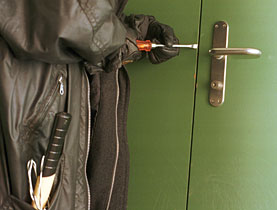
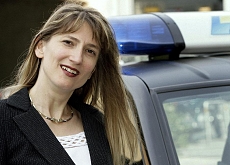
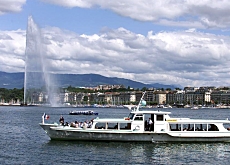
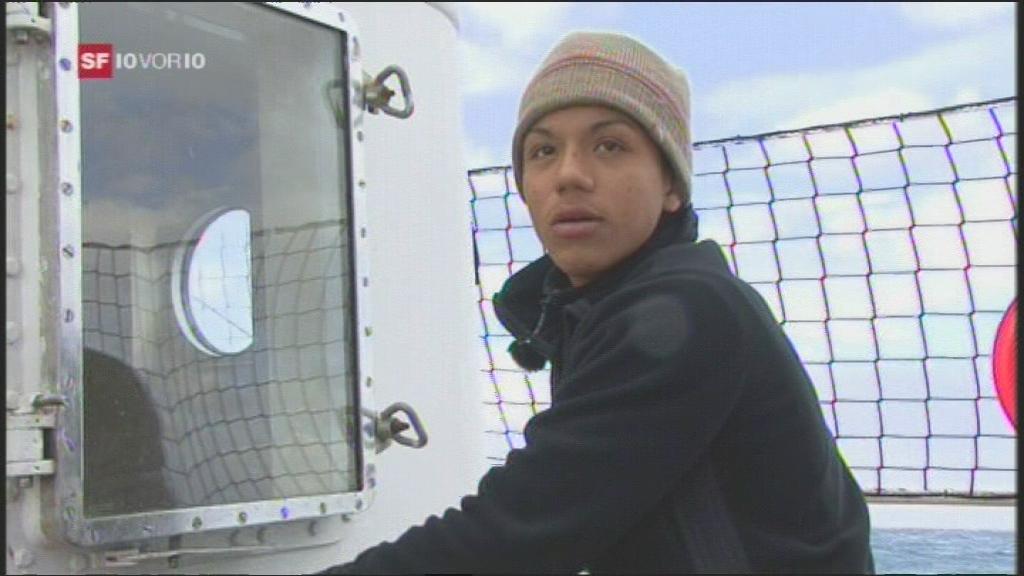
You can find an overview of ongoing debates with our journalists here. Please join us!
If you want to start a conversation about a topic raised in this article or want to report factual errors, email us at english@swissinfo.ch.